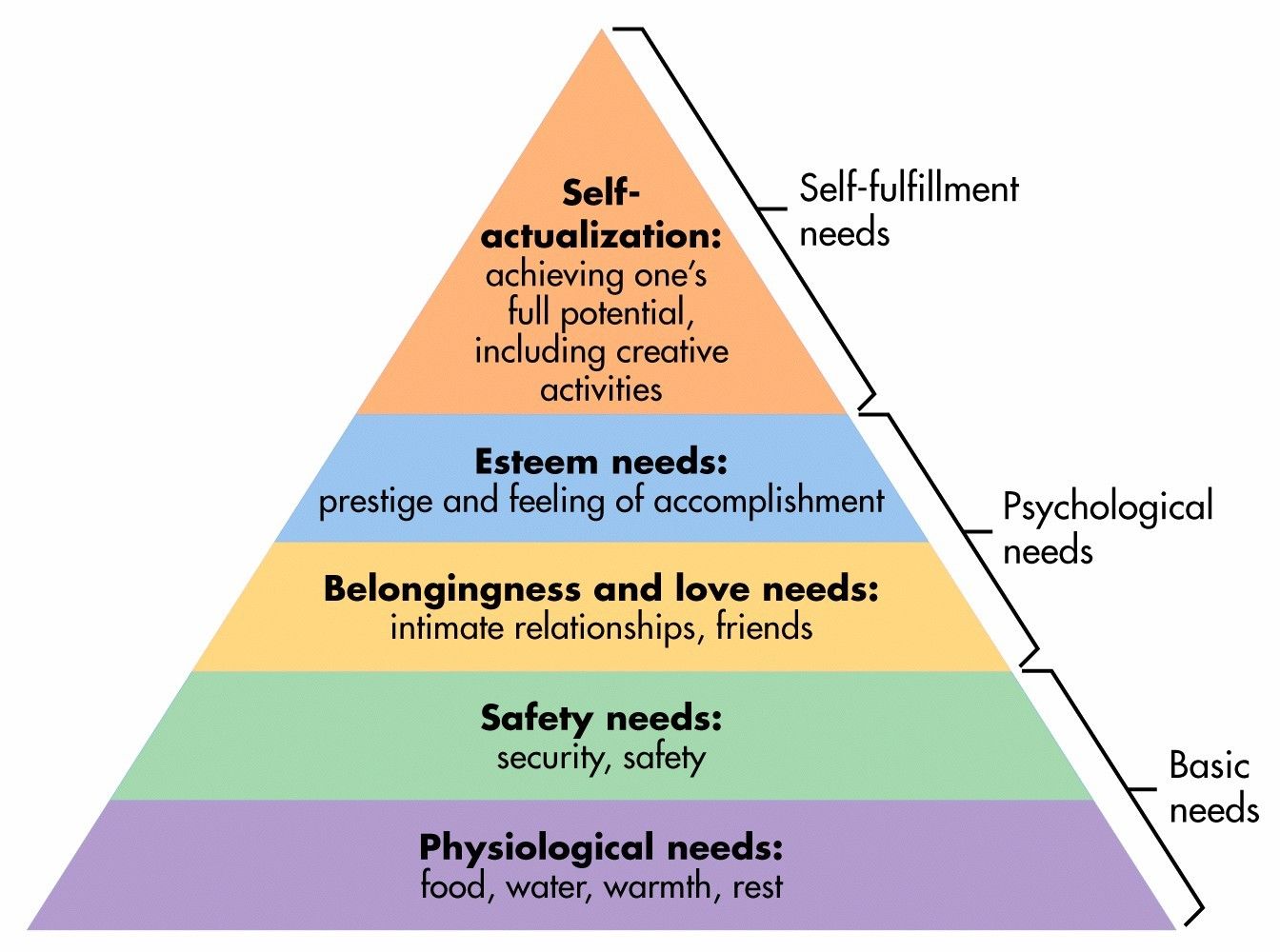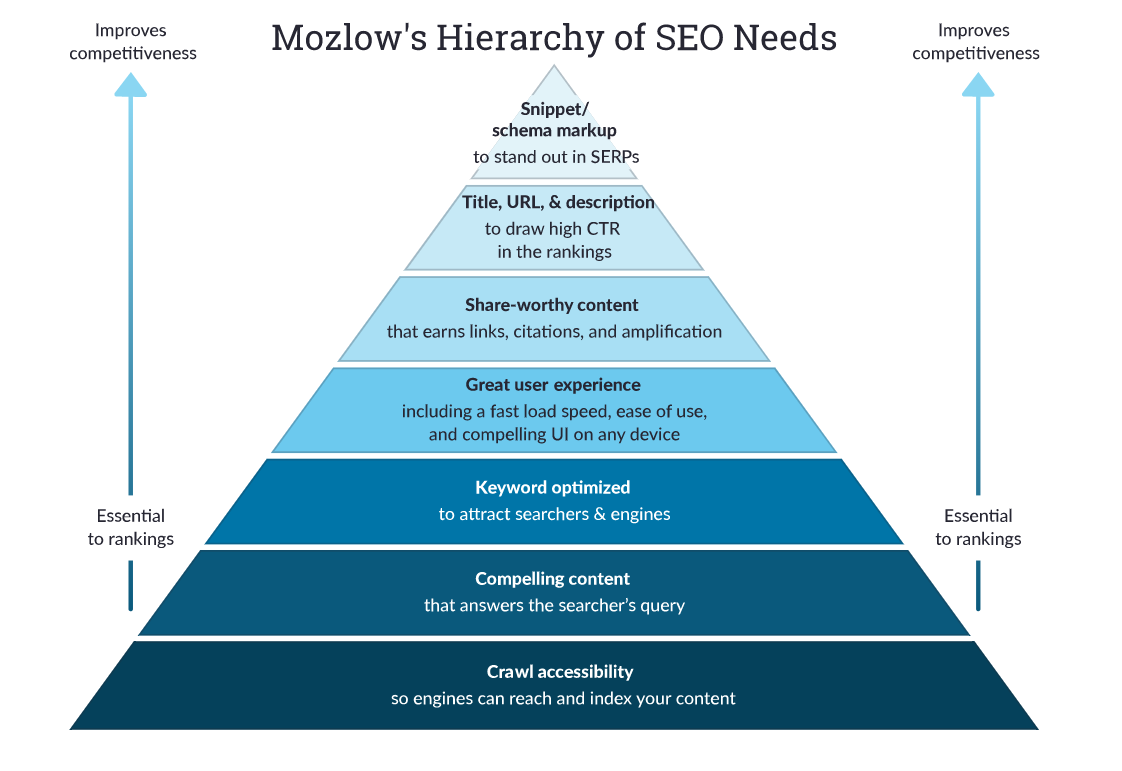Contents
Introduction
In today’s digital landscape, getting found online is more important than ever.
With almost as many websites as people on Earth, it’s become increasingly difficult to cut through the noise.
The climb to get to page one of search engine results, especially Google, is getting tougher. Users are more discerning than ever about the content they read and the websites they choose to interact with.
For the purpose of this article, we will be only focusing on Google as it gets 90 percent of the total traffic on search engines.
So, what is SEO?
SEO, which stands for Search Engine Optimization, is the practice of increasing the quality & quantity of traffic to a website through organic search engine results.
Why is SEO important?
The majority of your online experience involves search. Consider these statistics below for your reference.
- 68% of online experiences begin with a search engine.
- 53% of all website traffic comes from organic search.
- 93% of global traffic comes from Google
As you can see that search operations are performed by almost every internet user, therefore, it is important for content creators to learn SEO. SEO will help you rank your articles at the top of SERP. This way you will get traffic to your website & monetize it.
What type of webpage can rank on Google?
For a website or a webpage to rank on Google, you need to have the following three qualities.
- E-Expertise
- A-Authoritativeness
- T-Trustworthiness
These are the things that Google really cares about while ranking on SERP(Search Engine Results Page)
If your website has a low EAT score then you won’t be able to rank on SERP. So you should try to improve your EAT score.
So you may ask me, how do I improve my EAT score? The only answer to this is to consistently write high-quality content and optimize it for SEO.
You should keep in mind that SEO is an ongoing, long & tedious process. There is no quick fix or silver bullet for it. So be consistent in your content creation & optimization work.
How do search engines rank your content?
The key to ranking is to understand how Google finds, analyzes, and ranks your content. There are two important things when it comes to ranking on Google.
- Build discovery (crawling) and relevance (indexing) by creating lots of high-value content
- Build authority (ranking) by getting lots of quality backlinks to your site.
In order to rank your content Google needs to first discover your content, index it, and then rank it.
There are three stages in the ranking process:
- Discovery stage- Search engine bots discover your content by crawling the internet.
- Relevance stage- Then they decide the relevancy of your content based on signals like keywords and then search engines index it.
- Authority stage– By building high-quality backlinks you build your authority and therefore your content gets rank high on SERP.
Consider an analogy of a library. Consider that you are working in a library and you need to organize books on different shelves.
First, you need to find the books to arrange. This is the discovery stage.
Second, you need to sort the books into different categories by looking for signals like title, topics, authors known for, etc. This is the indexing stage where you assess the books for some signals and then store them accordingly.
Third, you decide which books to feature on the bestseller shelf. This is a ranking. It is based on the author’s credibility, if the content is talked about often, referred to often, etc. This is how you determine the book’s authority.
All these factors combined decide your ranking on Google. Also, all 3 factors are dependent on one another.
For example, if the content isn’t relevant, then there is little chance of ranking no matter how authoritative your site is. Similarly, if your website isn’t authoritative, then there is little chance of ranking no matter how relevant it is. And finally, if your website isn’t discovered then you cannot rank for it at all.
This is how you discover the content, index it through relevant signals, and then rank your content on google based on authority.
What does your SEO Strategy be like?
Maslow’s Hierarchy Of Needs:

Needs at the lower level should be fulfilled first then the higher levels.
SEO has its own hierarchy of needs. It is called Mozlow’s hierarchy of needs as it is created by Moz. Just like Maslow’s hierarchy for human beings, Mozlow’s hierarchy also needs to fulfill the bottom tier before you move on to higher tiers.

Your SEO strategy will depend on several factors like:
- How established is your business online?
- What industry are you in?
- What resources do you have for SEO?
But a healthy SEO approach balances building relevance & authority. That is building high-quality content and high-quality backlinks simultaneously.
The next thing to do is set goals for your website.
- Do you want to increase organic traffic in a set time period?
- Do you want to increase the number of leads from your website?
- And, Do you want to optimize your site for mobile?
- How many articles do you want to rank on the first page of Google?
You need to set up SMART goals for SEO. SMART goals are specific, measurable, achievable, realistic & time-bound.
- Specific- Do not set vague goals. Be specific.
- Measurable- through KPIs Key Performance Indicators. KPIs are the critical indicators of progress towards an intended result. Eg. organic traffic, bounce rate, backlinks built, etc.
- Achievable & Realistic- based on your time & other resources.
- Time-Bound- Have a set deadline.
However, you should be careful not to focus too much on ticking boxes just for SEO benefits. You should always create content for your end-users, therefore, helping you to rank long term by helping the users.
Publishing content is important but more important is to build authority. That is to measure the number of backlinks (volume) & their quality.
To truly measure a website’s authority you need to analyze your backlink profile. That is a list of all sites currently linking to your including how they are linking & which pages they are linking to.
A backline profile measures:
The number of inbound links to your website.
The number of unique domains that link to your website.
The quality of your links.
Analyzing your backlink profile manually is difficult & therefore you can use tools like Ahref, Moz, or Semrush. They are just estimates but give you a general idea of how authoritative your website is.
Conclusion:
This was the basic guide to get your journey started with SEO. We learned about the SEO definition, its importance, working, strategy & ways to improve site authority. In the coming times, I will be writing on more advanced topics & try to cover in detail every aspect of SEO. So stay tuned with us.
